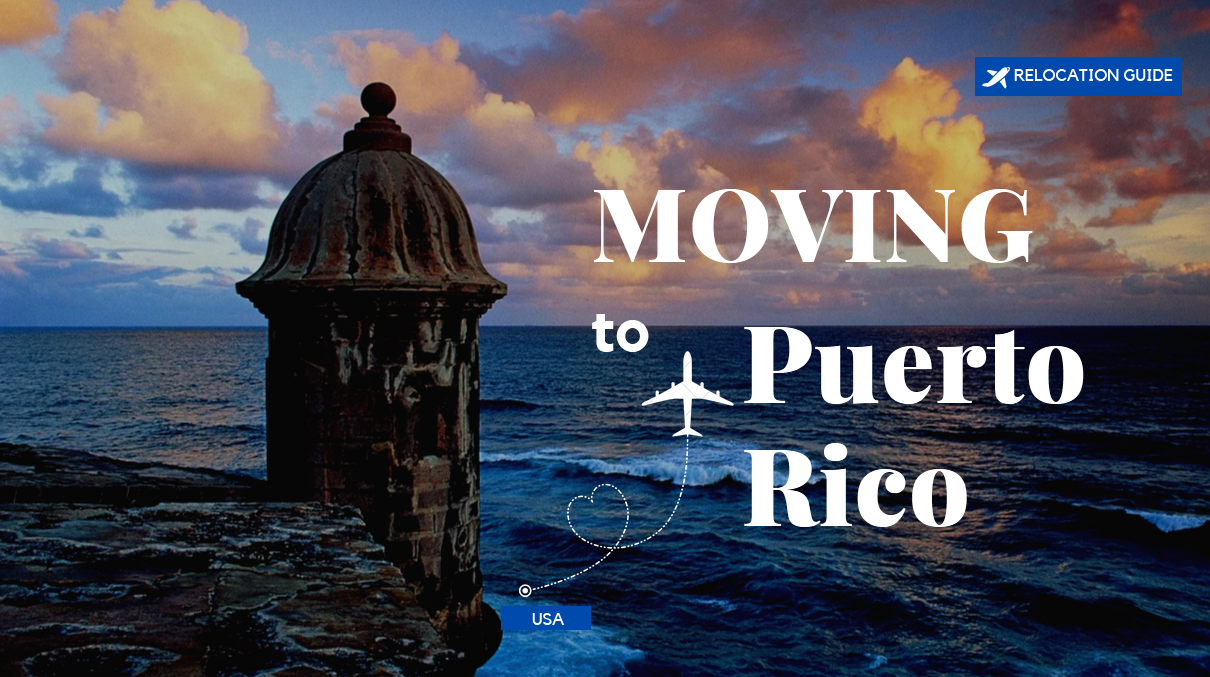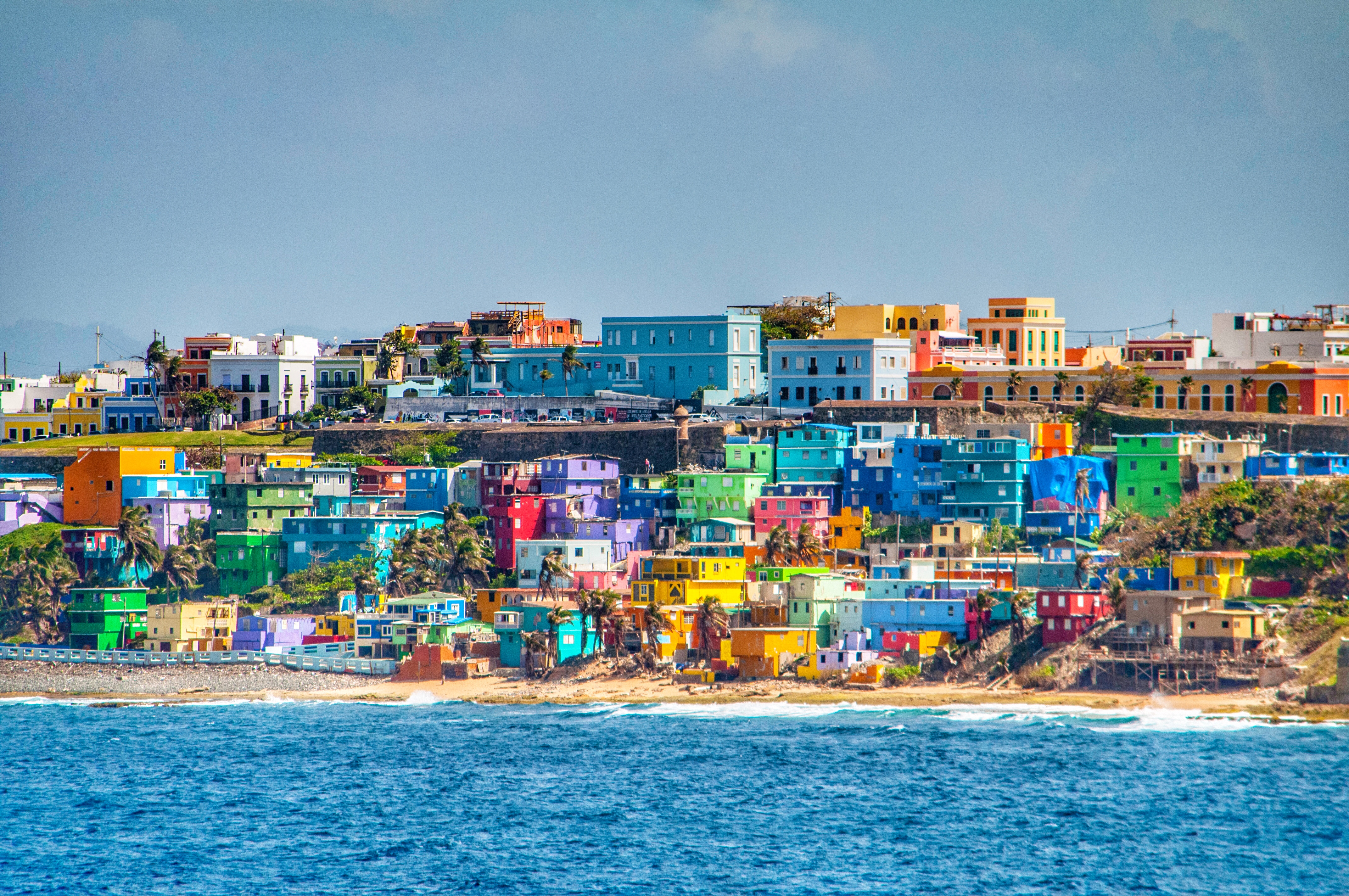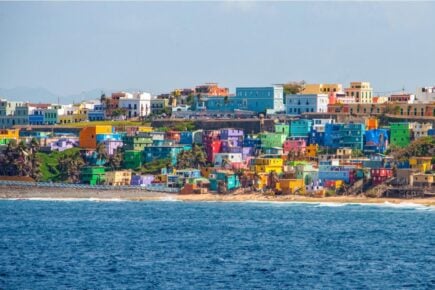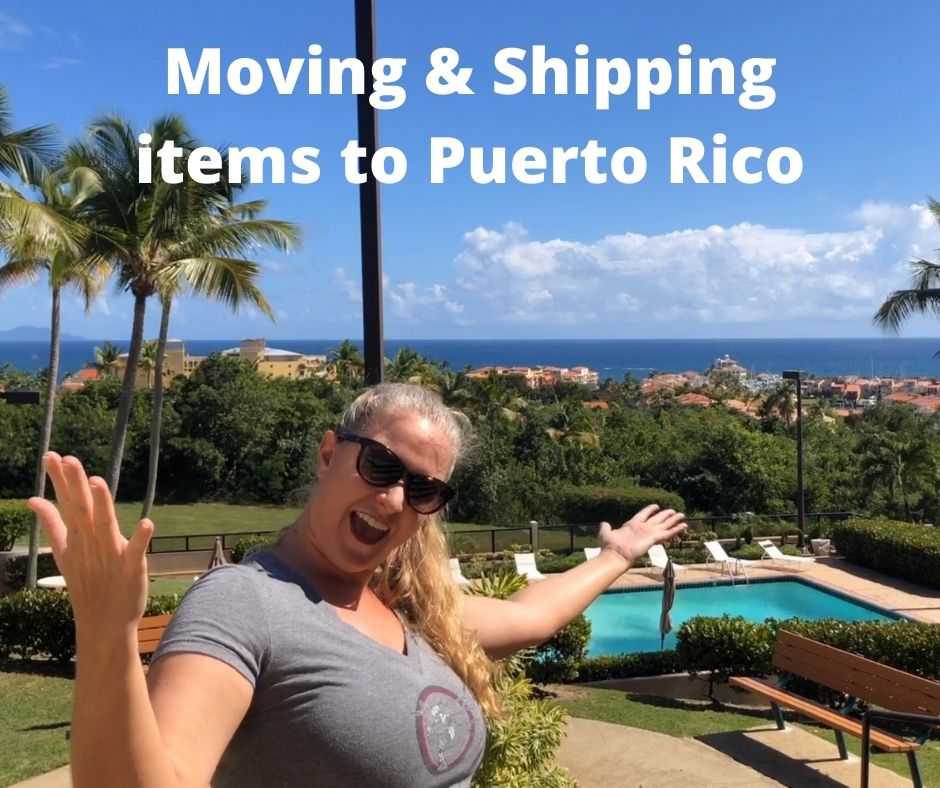Moving From Texas To Puerto Rico
Are you considering leaving the Lone Star State behind for a tropical getaway? Moving from Texas to Puerto Rico can be an exciting adventure, but it's essential to be prepared for the significant changes that come with relocating to an island in the northeastern Caribbean. From adjusting to a new climate and culture to navigating the logistics of moving your belongings, this transition requires careful planning. In this article, we'll provide you with a comprehensive guide to help you make a smooth transition to your new life in Puerto Rico, including tips on housing, employment, and more.

- Island Living: A Guide to Moving from Texas to Puerto Rico
- Can a US citizen just move to Puerto Rico?
- Is it worth it to move to Puerto Rico?
- How much money do I need to move to Puerto Rico?
- How do I move my belongings to Puerto Rico?
- FAQ
- What are the main differences between Texas and Puerto Rico in terms of cost of living?
- How do I navigate the process of getting a job in Puerto Rico as a non-resident?
- What are the education options available for my children in Puerto Rico?
- How do I prepare for the cultural differences between Texas and Puerto Rico?
Island Living: A Guide to Moving from Texas to Puerto Rico
Moving from Texas to Puerto Rico can be an exciting adventure, but it's essential to be prepared for the significant changes that come with relocating to an island in the Caribbean. From cultural differences to logistics, here's what you need to know to make a smooth transition:
Understanding the Cost of Living in Puerto Rico
One of the most significant factors to consider when moving to Puerto Rico is the cost of living. Compared to Texas, Puerto Rico has a relatively low cost of living, with lower housing costs, food prices, and transportation expenses. However, it's essential to note that the island is still recovering from Hurricane Maria, and prices may vary depending on the location and availability of goods and services.
Job Opportunities and Career Development
Puerto Rico has a growing economy, with industries such as tourism, healthcare, and technology driving growth. However, the job market is competitive, and it's crucial to research and network before making the move. Additionally, consider the possibility of remote work or starting your own business, as the island offers a unique blend of US and international opportunities.
Taxes and Residency Requirements
As a US citizen, you won't need a visa to move to Puerto Rico, but you'll need to understand the tax implications of relocating. Puerto Rico offers a unique tax incentive program, Act 20/22, which provides tax exemptions on certain income. However, it's essential to consult with a tax professional to understand the requirements and implications of moving to the island.
Housing and Neighborhoods
Finding the right housing in Puerto Rico can be challenging, especially in popular areas like San Juan. Research different neighborhoods, such as Old San Juan, Condado, and Santurce, to find the best fit for your lifestyle and budget. Consider factors like proximity to work, amenities, and safety when choosing a neighborhood.
Healthcare and Medical Facilities
Puerto Rico has a well-developed healthcare system, with several high-quality hospitals and medical facilities. However, it's essential to research and understand the healthcare options available, including private insurance and public health facilities. Additionally, consider the availability of specialized medical care and the quality of emergency services.
| Category | Texas | Puerto Rico |
|---|---|---|
| Cost of Living | High | Relatively Low |
| Job Opportunities | Strong economy, diverse industries | Growing economy, tourism and healthcare industries |
| Taxes | State income tax: 0% | Federal income tax: 0%, local taxes applicable |
| Housing | Affordable options available | Competitive market, consider neighborhoods carefully |
| Healthcare | High-quality facilities, diverse options | Well-developed healthcare system, research options carefully |
Note: The table provides a general comparison between Texas and Puerto Rico, but it's essential to research and consult with experts for more detailed and accurate information.
Can a US citizen just move to Puerto Rico?

As a US citizen, you don't need a visa or a passport to enter Puerto Rico, and you don't need to go through customs. Puerto Rico is a US territory, and as a US citizen, you have the right to live and work there without any restrictions. However, there are some things to consider before making the move.
Benefits of Moving to Puerto Rico
One of the main benefits of moving to Puerto Rico is the tax incentives. Act 20/22, also known as the Puerto Rico Investment Promotion Act, offers significant tax breaks for new residents. You may be eligible for:
- No federal income tax on dividends, interest, and capital gains.
- No Puerto Rico income tax on dividends, interest, and capital gains.
- Low corporate tax rate of 4% on business income.
Things to Consider Before Moving
While moving to Puerto Rico can be an attractive option, there are some things to consider before making the move:
- Hurricane risk: Puerto Rico is a hurricane-prone area, and you should be prepared for potential natural disasters.
- Language and culture: While many Puerto Ricans speak English, Spanish is the predominant language, and you may need to learn some Spanish to fully integrate into the community.
- Job opportunities: While there are many job opportunities in Puerto Rico, the economy is still recovering from the debt crisis, and you may need to be flexible and adaptable.
Logistics of Moving to Puerto Rico
If you've decided to move to Puerto Rico, here are some logistics to consider:
- Finding a place to live: You can rent or buy a property, but be prepared for higher prices in popular areas like San Juan.
- Getting healthcare: Puerto Rico has a public healthcare system, but you may need to purchase private health insurance to access better facilities.
- Transportation: Puerto Rico has a well-developed transportation system, including an international airport, buses, and taxis.
Is it worth it to move to Puerto Rico?

Puerto Rico, a US territory in the northeastern Caribbean, has been a popular destination for expats and digital nomads in recent years. The island offers a unique blend of Spanish colonial history, stunning natural beauty, and modern amenities. However, like any place, it has its pros and cons. Here are some factors to consider when deciding if moving to Puerto Rico is right for you:
Tax Incentives
One of the main attractions of Puerto Rico is its tax-friendly environment. The island offers several tax incentive programs, including Act 20 and Act 22, which provide significant tax breaks for eligible individuals. Under these programs, you can enjoy a 0% tax rate on dividends, interest, and capital gains. This can be a huge advantage for entrepreneurs, investors, and retirees.
• Act 20: Exempts export services income from Puerto Rico income taxes.
• Act 22: Exempts certain types of income, including dividends, interest, and capital gains, from Puerto Rico income taxes.
• Residency requirements: You must reside in Puerto Rico for at least 183 days per year to qualify for these programs.
Cost of Living
The cost of living in Puerto Rico is generally lower than in many parts of the United States. Housing, food, and transportation costs are relatively affordable, especially outside of San Juan, the capital city. However, the island is still recovering from the devastating effects of Hurricane Maria in 2017, and some areas may lack access to basic amenities.
• Rent: You can find apartments and houses for rent at a lower cost than in many US cities.
• Food: Eating out can be affordable, and many restaurants offer a mix of traditional Puerto Rican cuisine and international options.
• Transportation: Public transportation is limited, but owning a car can be relatively affordable.
Lifestyle and Culture
Puerto Rico is known for its vibrant culture, stunning beaches, and lush rainforests. The island has a strong sense of community, and many expats have reported feeling welcomed and integrated into local life. However, you should be prepared for some cultural and linguistic differences.
• Language: While many Puerto Ricans speak English, Spanish is the predominant language, and you may need to learn some basic phrases to navigate everyday life.
• Cuisine: Puerto Rican food is a fusion of Spanish, African, and indigenous influences, with popular dishes like arroz con gandules (rice with pigeon peas) and empanadas.
• Fiestas and festivals: Puerto Rico has a lively festival scene, with events like the San Sebastián Street Festival and the Ponce Carnival.
How much money do I need to move to Puerto Rico?

The cost of moving to Puerto Rico can vary greatly depending on several factors, including the individual's lifestyle, location, and personal preferences. However, here are some estimated costs to consider:
Initial Expenses
Airfare: $200-$500 (depending on the time of year and departure location)
Shipping costs: $2,000-$5,000 (depending on the size of the shipment and distance)
Temporary accommodation: $1,000-$2,000 (depending on the type and duration)
Vehicle transportation (if applicable): $1,000-$2,000
Ongoing Expenses
Rent: $800-$2,000 per month (depending on location and type of accommodation)
Food: $500-$1,000 per month (depending on eating habits and lifestyle)
Transportation: $200-$500 per month (depending on mode of transportation and frequency)
Utilities: $150-$300 per month (depending on usage and provider)
Other Considerations
Calculating Your Moving Budget
To determine how much money you need to move to Puerto Rico, consider the following factors:
- Calculate your total income and expenses to determine how much you can afford to spend on moving costs.
- Research the cost of living in Puerto Rico and factor in any lifestyle changes you may need to make.
- Consider opening a savings account specifically for moving expenses to track your progress and stay on budget.
Managing Your Finances After the Move
After moving to Puerto Rico, it's essential to manage your finances effectively to ensure a smooth transition:
- Open a local bank account to access cash and pay bills easily.
- Set up a budget that accounts for local taxes, utilities, and other expenses.
- Research local job opportunities or remote work arrangements to maintain a steady income.
Additional Tips and Considerations
Before making the move, consider the following:
- Research the local culture and customs to ensure a smooth transition.
- Learn about the local healthcare system and any necessary vaccinations.
- Plan for any necessary documents, such as a passport or driver's license, and ensure they are up to date.
How do I move my belongings to Puerto Rico?

Moving to Puerto Rico can be an exciting adventure, but it requires careful planning, especially when it comes to transporting your belongings. Here's a step-by-step guide to help you move your belongings to Puerto Rico:
Researching Shipping Options
When moving to Puerto Rico, you have several shipping options to choose from, including air freight, ocean freight, and ground transportation. Air freight is the fastest option, but it's also the most expensive. Ocean freight is a more affordable option, but it takes longer. Ground transportation is suitable for smaller moves, but it may not be the most convenient option. To find the best shipping option for your needs, research different companies and compare their rates, services, and reviews.
Preparing Your Belongings for Shipping
Before shipping your belongings, you need to prepare them properly to ensure they arrive in Puerto Rico safely. Here's a checklist to follow:
- Packing: Use sturdy boxes, packing paper, and bubble wrap to protect your belongings during transit.
- Labeling: Clearly label each box with its contents, weight, and your name and address in Puerto Rico.
- Inventory: Create a detailed inventory of your shipped items, including their value and condition.
Clearing Customs in Puerto Rico
When your belongings arrive in Puerto Rico, they'll need to clear customs before you can take possession of them. To ensure a smooth process, make sure you have the following documents:
- Commercial Invoice: A detailed invoice from the shipping company, including the value and description of each item.
- Bill of Lading: A document issued by the shipping company, detailing the shipment's details and route.
- Customs Form: A form completed by the shipping company, detailing the shipment's contents and value.
FAQ
What are the main differences between Texas and Puerto Rico in terms of cost of living?
When considering a move from Texas to Puerto Rico, one of the most significant factors to consider is the cost of living. Puerto Rico has a lower cost of living compared to Texas, with housing costs being significantly lower. The median home price in Puerto Rico is around $140,000, while in Texas, it's around $240,000. Additionally, Puerto Rico has a 10% to 15% lower cost of groceries, and utilities such as electricity and water are also relatively cheaper. However, it's essential to note that Puerto Rico has a higher sales tax rate of 10.5% compared to Texas's 8.25%. Overall, Puerto Rico offers a more affordable lifestyle, making it an attractive option for those looking to relocate.
If you're planning to move from Texas to Puerto Rico, finding a job can be a crucial aspect of your relocation. As a non-resident, you'll need to understand the job market in Puerto Rico and the requirements for working on the island. The first step is to research companies that operate in Puerto Rico and have job openings that match your skills and experience. You can also consider working with a recruitment agency that specializes in placements in Puerto Rico. Additionally, you may need to obtain a work permit, which can be sponsored by your employer. It's essential to note that Puerto Rico has a high unemployment rate, so it's crucial to have a solid job prospect before making the move.
What are the education options available for my children in Puerto Rico?
If you're moving from Texas to Puerto Rico with children, education is likely a top priority. Puerto Rico has a bilingual education system, with instruction in both English and Spanish. There are public schools, private schools, and international schools available, offering a range of curricula and educational approaches. Some popular international schools in Puerto Rico include the Puerto Rico International School and the Tasis School. It's essential to research these options carefully and consider factors such as school ratings, curriculum, and extracurricular activities when choosing the best fit for your child.
How do I prepare for the cultural differences between Texas and Puerto Rico?
Moving from Texas to Puerto Rico can be a significant cultural adjustment, and it's essential to be prepared for the differences you'll encounter. Puerto Rico is a US territory with a rich Hispanic culture, which is distinct from the Southern culture of Texas. You can expect a more relaxed pace of life, a stronger sense of community, and a vibrant cultural scene in Puerto Rico. To prepare, learn about Puerto Rican customs, study some Spanish, and be open to new experiences. Additionally, join expat communities and networking groups to connect with others who have made a similar move and can offer valuable insights and advice.